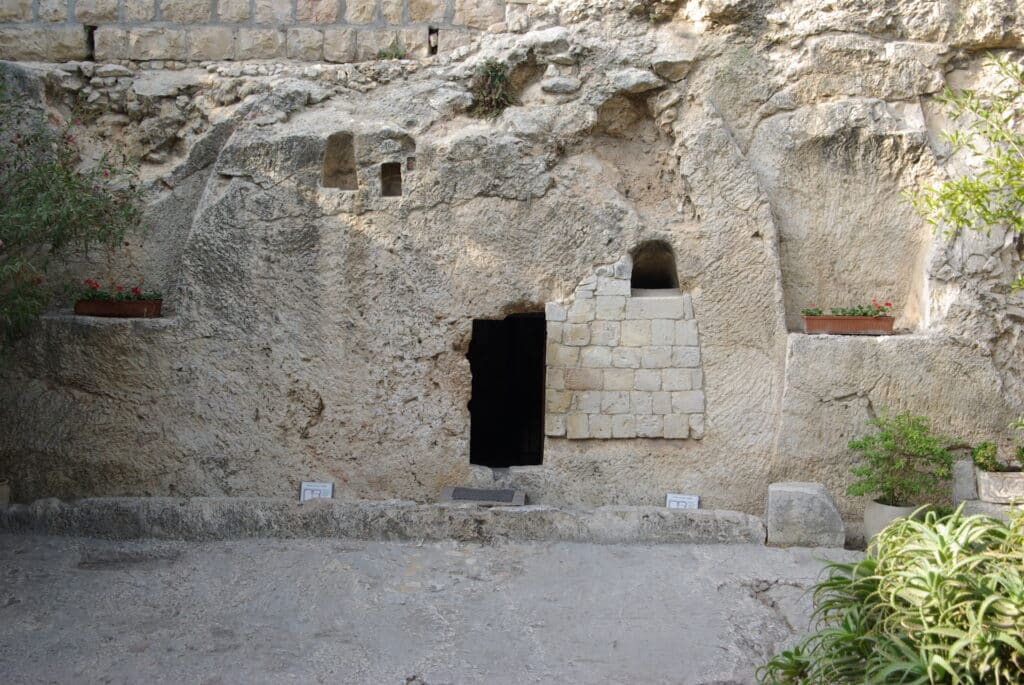The Burial of Sarah:
Lessons from Genesis 23
Introduction
In Genesis 23, we encounter an important event in the life of Abraham and his family: the death and burial of his wife, Sarah. This chapter provides us with insights into ancient customs and the significance of land ownership, while also highlighting Abraham’s faith and the fulfilment of God’s promises. To better understand the context, let’s explore some history leading up to this point in the Bible.

Historical Background:
Abraham, originally named Abram, was called by God to leave his homeland of Ur and go to the land of Canaan. He obeyed God’s command and, along with his wife Sarah, his nephew Lot, and their household, journeyed to Canaan. God promised Abraham that He would bless him and make his descendants into a great nation.
As Abraham travelled through Canaan, he faced various challenges and witnessed the fulfilment of God’s promises. However, he also encountered conflicts and had to make important decisions. At this point in the biblical narrative, Abraham is an elderly man, and Sarah has passed away. They had journeyed together for many years, faithfully following God’s guidance.
According to biblical accounts, Sarah lived to be 127 years old (Genesis 23:1). Before her death, she had one son, Isaac, who was born to her and Abraham in their old age. Isaac would go on to become the father of Jacob (Israel), and his twelve sons would form the twelve tribes of Israel.
The Hittites and Kiriath-arba:
During this time, the region of Canaan was inhabited by several tribes and nations. One of these groups was the Hittites, who were known for their powerful empire in Anatolia (modern-day Turkey). The Hittites were a prominent civilisation with advanced military capabilities and a developed legal system. They had established settlements throughout the region, including the city of Hebron, which was known as Kiriath-arba.
Ephron, Son of Zohar:
Genesis 23 introduces us to Ephron, son of Zohar, who was a Hittite living in Kiriath-arba. Ephron is mentioned as a prominent member of the Hittite community and possessed a burial site known as the cave of Machpelah.Genesis 23 introduces us to Ephron, son of Zohar, who was a Hittite living in Kiriath-arba. Ephron is mentioned as a prominent member of the Hittite community and possessed a burial site known as the cave of Machpelah.
The Cave of Machpelah:
The cave of Machpelah was a burial site located in Hebron, in the region of Canaan. It was an important and significant place for Abraham and his descendants. This cave would later become the burial place for Abraham, Sarah, Isaac, Rebekah, Jacob, and Leah. The cave held great religious and historical significance as a place of remembrance for God’s chosen people.
The Significance of Ephron’s Cave and Land:
When Sarah died, Abraham sought to secure a burial place for her. Recognising the importance of the cave of Machpelah, he approached the Hittites to negotiate the purchase of the cave and the surrounding land. Ephron, who was a respected member of the community, offered to give Abraham the land and the cave as a gift. However, Abraham insisted on purchasing it at a fair price as a legal transaction, recognising the value and significance of the land.
Lessons to Apply:
Respect for customs and traditions:
Abraham honoured the local customs and sought to acquire the burial site through legal means. Similarly, we should respect the laws and customs of the communities we live in, demonstrating integrity and ethical conduct in all our dealings.
Faith and patience:
Abraham’s life was characterised by faith and trust in God’s promises. Despite the loss of his beloved wife, he remained steadfast and continued to follow God’s guidance. In our own lives, we should cultivate faith and patience, trusting in God’s faithfulness even during difficult times.
The importance of remembrance:
The cave of Machpelah became a place of remembrance for Abraham and his descendants. It served as a reminder of God’s faithfulness and the heritage of the chosen people. We too should value the importance of remembrance, cherishing our own spiritual heritage and passing it on to future generations.
Conclusion
Genesis 23 provides us with a glimpse into the life of Abraham and the significance of land ownership and burial customs in ancient times. It teaches us lessons about faith, patience, and the importance of remembrance. By studying these biblical accounts, we can find inspiration for our own lives and grow in our understanding of God’s faithfulness throughout history.
